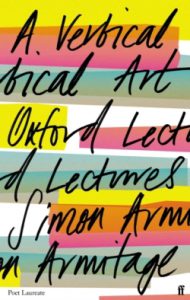Fleurs du Mal Magazine


Or see the index

Blind Old Milton
Place me once more, my daughter, where the sun
May shine upon my old and time-worn head,
For the last time, perchance. My race is run;
And soon amidst the ever-silent dead
I must repose, it may be, half forgot.
Yes! I have broke the hard and bitter bread
For many a year, and with those who trembled not
To buckle on their armor for the fight,
And set themselves against the tyrant’s lot;
And I have never bowed me to his might,
Nor knelt before him — for I bear within
My heart the sternest consciousness of right,
And that perpetual hate of gilded sin
Which made me what I am; and though the stain
Of poverty be on me, yet I win
More honor by it, than the blinded train
Who hug their willing servitude, and bow
Unto the weakest and the most profane.
Therefore, with unencumbered soul I go
Before the footstool of my Maker, where
I hope to stand as undebased as now!
Child! is the sun abroad? I feel my hair
Borne up and wafted by the gentle wind,
I feel the odors that perfume the air,
And hear the rustling of the leaves behind.
Within my heart I picture them, and then
I almost can forget that I am blind,
And old, and hated by my fellow-men.
Yet would I fain once more behold the grace
Of nature ere I die, and gaze again
Upon her living and rejoicing face —
Fain would I see thy countenance, my child,
My comforter! I feel thy dear embrace —
I hear thy voice, so musical and mild,
The patient sole interpreter, by whom
So many years of sadness are beguiled;
For it hath made my small and scanty room
Peopled with glowing visions of the past.
But I will calmly bend me to my doom,
And wait the hour which is approaching fast,
When triple light shall stream upon mine eyes,
And heaven itself be opened up at last
To him who dared foretell its mysteries.
I have had visions in this drear eclipse
Of outward consciousness, and clomb the skies,
Striving to utter with my earthly lips
What the diviner soul had half divined,
Even as the Saint in his Apocalypse
Who saw the inmost glory, where enshrined
Sat He who fashioned glory. This hath driven
All outward strife and tumult from my mind,
And humbled me, until I have forgiven
My bitter enemies, and only seek
To find the straight and narrow path to heaven.
Yet I am weak — oh! how entirely weak,
For one who may not love nor suffer more!
Sometimes unbidden tears will wet my cheek,
And my heart bound as keenly as of yore.
Responsive to a voice, now hushed to rest,
Which made the beautiful Italian shore,
In all its pomp of summer vineyards drest,
And Eden and a Paradise to me.
Do the sweet breezes from the balmy west
Still murmur through thy groves, Parthenope,
In search of odors from the orange bowers?
Still, on thy slopes of verdure, does the bee
Cull her rare honey from the virgin flowers?
And Philomel her plaintive chaunt prolong
‘Neath skies more calm and more serene than ours,
Making the summer one perpetual song?
Art thou the same as when in manhood’s pride
I walked in joy thy grassy meads among,
With that fair youthful vision by my side,
In whose bright eyes I looked — and not in vain?
O my adorèd angel! O my bride!
Despite of years, and woe, and want, and pain,
My soul yearns back towards thee, and I seem
To wander with thee, hand in hand, again,
By the bright margins of that flowing stream.
I hear again thy voice, more silver-sweet
Than fancied music floating in a dream,
Possess my being; from afar I greet
The waving of thy garments in the glade,
And the light rustling of thy fairy feet —
What time as one half eager, half afraid,
Love’s burning secret faltered on my tongue,
And tremulous looks and broken words betrayed
The secret of the heart from whence they sprung.
Ah me! the earth that rendered thee to heaven
Gave up an angel beautiful and young,
Spotless and pure as snow when freshly driven;
A bright Aurora for the starry sphere
Where all is love, and even life forgiven.
Bride of immortal beauty — ever dear!
Dost thou await me in thy blest abode!
While I, Tithonus-like, must linger here,
And count each step along the rugged road;
A phantom, tottering to a long-made grave.
And eager to lay down my weary load.
I who was fancy’s lord, am fancy’s slave.
Like the low murmurs of the Indian shell
Ta’en from its coral bed beneath the wave,
Which, unforgetful of the ocean’s swell,
Retains within its mystic urn the hum
Heard in the sea-grots where Nereids dwell —
Old thoughts still haunt me — unawares they come
Between me and my rest, nor can I make
Those aged visitors of sorrow dumb.
Oh, yet awhile, my feeble soul, awake!
Nor wander back with sullen steps again;
For neither pleasant pastime canst thou take
In such a journey, nor endure the pain.
The phantoms of the past are dead for thee;
So let them ever uninvoked remain,
And be thou calm, till death shall set thee free.
Thy flowers of hope expanded long ago,
Long since their blossoms withered on the tree:
No second spring can come to make them blow,
But in the silent winter of the grave
They lie with blighted love and buried woe.
I did not waste the gifts which nature gave,
Nor slothful lay in the Circean bower;
Nor did I yield myself the willing slave
Of lust for pride, for riches, or for power.
No! in my heart a nobler spirit dwelt;
For constant was my faith in manhood’s dower;
Man — made in God’s own image — and I felt
How of our own accord we courted shame,
Until to idols like ourselves we knelt,
And so renounced the great and glorious claim
Of freedom, our immortal heritage.
I saw how bigotry, with spiteful aim,
Smote at the searching eyesight of the sage;
How Error stole behind the steps of Truth,
And cast delusion on the sacred page.
So, as a champion, even in early youth
I waged by battle with a purpose keen:
Nor feared the hand of terror, nor the tooth
Of serpent jealousy. And I have been
With starry Galileo in his cell —
That wise magician with the brow serene,
Who fathomed space; and I have seen him tell
The wonders of the planetary sphere,
And trace the ramparts of heaven’s citadel
On the cold flag-stones of his dungeon drear.
And I have walked with Hampden and with Vane —
Names once so gracious to an English ear —
In days that never may return again.
My voice, though not the loudest, hath been heard
Whenever freedom raised her cry of pain,
And the faint effort of the humble bard
Hath roused up thousands from their lethargy,
To speak in words of thunder. What reward
Was mine, or theirs? It matters not; for I
am but a leaf cast on the whirling tide,
Without a hope or wish, except to die.
But truth, asserted once, must still abide,
Unquenchable, as are those fiery springs
Which day and night gush from the mountain-side,
Perpetual meteors girt with lambent wings,
Which the wild tempest tosses to and fro,
But cannot conquer with the force it brings.
Yet I, who ever felt another’s woe
More keenly than my own untold distress;
I, who have battled with the common foe,
And broke for years the bread of bitterness;
Who never yet abandoned or betrayed
The trust vouchsafed me, nor have ceased to bless,
Am left alone to wither in the shade,
A weak old man, deserted by his kind —
Whom none will comfort in his age, nor aid!
Oh, let me not repine! A quiet mind
Conscious and upright, needs no other stay;
Nor can I grieve for what I leave behind,
In the rich promise of eternal day.
Henceforth to me the world is dead and gone,
Its thorns unfelt, its roses cast away:
And the old pilgrim, weary and alone,
Bowed down with travel, at his Master’s gate
Now sits, his task of life-long labor done,
Thankful for rest, although it comes so late,
After sore journey through the world of sin,
In hope, and prayer, and wistfulness to wait,
Until the door shall ope, and let him in.
William Edmondstoune Aytoun
(1813 — 1865)
Blind Old Milton
• fleursdumal.nl magazine
More in: # Classic Poetry Archive, Archive A-B, Archive A-B, Milton, John
From the UK Poet Laureate and bestselling translator, a spirited book that demystifies and celebrates the art of poetry today
 In A Vertical Art, acclaimed poet Simon Armitage takes a refreshingly common-sense approach to an art form that can easily lend itself to grand statements and hollow gestures. Questioning both the facile and obscure ends of the poetry spectrum, he offers sparkling new insights about poetry and an array of favorite poets.
In A Vertical Art, acclaimed poet Simon Armitage takes a refreshingly common-sense approach to an art form that can easily lend itself to grand statements and hollow gestures. Questioning both the facile and obscure ends of the poetry spectrum, he offers sparkling new insights about poetry and an array of favorite poets.
Based on Armitage’s public lectures as Oxford Professor of Poetry, A Vertical Art illuminates poets as varied as Emily Dickinson, Walt Whitman, Marianne Moore, W. H. Auden, Ted Hughes, Thom Gunn, A. R. Ammons, and Claudia Rankine.
The chapters are often delightfully sassy in their treatment, as in “Like, Elizabeth Bishop,” in which Armitage dissects―and tallies―the poet’s predilection for similes.
He discusses Bob Dylan’s Nobel Prize, poetic lists, poetry and the underworld, and the dilemmas of translating Sir Gawain and the Green Knight. Armitage also pulls back the curtain on the unromantic realities of making a living as a contemporary poet, and ends the book with his own list of “Ninety-Five Theses” on the principles and practice of poetry.
An appealingly personal book that explores the volatile and disputed definitions of poetry from the viewpoint of a practicing writer and dedicated reader, A Vertical Art makes an insightful and entertaining case for the power and potential of poetry today.
A Vertical Art: On Poetry
by Simon Armitage (Author)
Publisher Princeton University Press
Section Poetry Criticism
Paperback
ISBN 9780691233109
May 24, 2022
Paperback
$22.95
• fleursdumal.nl magazine
More in: - Book News, - Bookstores, Archive A-B, Archive A-B, Armitage, Simon

Nimmer schor is de maan
Zwier de korrels uit de aren, dorsers! Het bier en brood
van morgen moet jullie akkers uit. Op stille tenen verklaart
gelukkig de middag zich geduldig nader. Dat kreupelhout
onwillig is en de spar ontschorst. Dat regen op komst lijkt:
hoge wolken zijn gestreept als de borstveren van een havik.
De wijze weet dat de maan nimmer schor is en heeft een
naam die eigenlijk zachte dieren zouden moeten dragen.
Onderaan de dijk bloeit in pruilende klei de grote bevernel.
Bert Bevers
Nimmer schor is de maan
Verschenen in de catalogus Enghuizer dialogen, Hummelo, 2019
• fleursdumal.nl magazine
More in: #Editors Choice Archiv, Archive A-B, Archive A-B, Bevers, Bert

Alles moet
Verblij me met het lijmen van tijden. Hoe
leven wonderschoon zich aan de mens gewoon
perfect voltrekt als alles goed gaat. Door denken
aan. Want alles moet. Niets gebeurt zomaar.
Zet aan het leven! Niets mis is er mee. Het is of
Fellini met een handycam achter ons loopt. Zo
Bert Bevers
Alles moet
Gedicht ongepubliceerd
• fleursdumal.nl magazine
More in: Archive A-B, Archive A-B, Bevers, Bert
Ingeborg Bachmann geldt als een van de belangrijkste schrijvers van de twintigste eeuw.
 De stoutmoedigheid van de taal, de scherpte van haar inzicht en de energie van het gevoel vormen vanaf het begin de onverwisselbare eigenheid van haar proza.
De stoutmoedigheid van de taal, de scherpte van haar inzicht en de energie van het gevoel vormen vanaf het begin de onverwisselbare eigenheid van haar proza.
Het laat mensen zien op het kruispunt van hun bestaan, vóór er ingrijpende beslissingen worden genomen.
Verzamelde verhalen bevat de bundel Het dertigste jaar, met de nadruk op het intellect, en de tien jaar later na een ernstige crisis gepubliceerde bundel Simultaan, met de nadruk op gevoel en liefde.
Daarnaast is de nooit eerder vertaalde vroege bundel Het veer opgenomen met een grote variatie aan onderwerpen.
Verzamelde verhalen
Auteur: Ingeborg Bachmann
Taal: Nederlands
Vertaling: Paul Beers
Uitgeverij Koppernik
Hardcover
Oorspronkelijke releasedatum
04 februari 2021
Aantal pagina’s: 504
EAN 9789083089850
€ 29.90
• fleursdumal.nl magazine
More in: - Book News, - Bookstores, Archive A-B, Archive A-B, Bachmann, Ingeborg, Celan, Paul

Who told who what
Theo told Guy and Guy told Declan
and Declan told Anne who told me
you were dead.
I told your ex-Chloe
and Chloe told your mother.
Jamie, your brother was told by Anne.
Philippa, your social worker already
knew for two days but told no one,
we had to find out from each other.
Jamie spoke to your mother
and your brothers and sister.
I told other friends who told me
they would come to your funeral.
The Crisis centre said they couldn’t talk to me
due to the Data Protection Act.
I couldn’t confirm any of the stories I was told.
The centre said they would get in touch
with me after checking who I was, but didn’t.
I was still waiting when I knew you had died.
Vincent Berquez
Poem: Who told who what
Vincent Berquez is a London–based artist and poet
• fleursdumal.nl magazine
More in: Archive A-B, Archive A-B, Berquez, Vincent, Vincent Berquez

Kruisiging in schermopdeling
Mulier, ecce filius tuus … Ecce mater tua.
I
Dismas spreekt naar links. Gestas weigert nors
de bekoring van bekering. Willen die geschieden
gaan hem voorbij in de vaart van het duister. O,
ontraadseling: veel kleiner dan de lucht is huid.
II
Nog maar onlangs was Hij timmermanskind,
glimlachend jong. Nu vertrouwt Hij in Zijn
laatste strijd en nakend onweder de leerling
Zijn moeder, en haar hem toe. Maria’s wenen.
III
Nabij het Schedelveld verschieten hogepriesters
en tollenaren in hun gewaden vol verraad als het
bliksemt, de aarde trilt. Ze erkennen hun nederlaag
wel maar wensen er die naam niet aan te geven.
Bert Bevers
Kruisiging in schermopdeling
Verschenen in Kruiswoorden in Poëziepuntgl, Oosterbeek, 2017
Bert Bevers is dichter en schrijver
Hij woont en werkt in Antwerpen (Be)
• fleursdumal.nl magazine
More in: Archive A-B, Archive A-B, Bevers, Bert

Eeuwenhout
(Een droom)
Is het valsheid in geschrifte wanneer ik
uit vannacht noteer dat waar de paarden
graasden het gras weerbarstig was?
Streelde daar bij Eeuwenhout hun manen,
kende niet hun namen maar ze roken naar
de weergalm van gebeden uit een oude tijd.
Vervolgens stak ik langs diens linkerzijde
traag een heel lang mes het hart in van een
stille, vreemde man. Amper zat er bloed
aan toen ik het terugtrok. Hoe merkwaardig.
Je zou denken dat het er van druipen zou.
Wat smaakte even later toch het bier me goed.
Bert Bevers
Eeuwenhout (Een droom)
Verschenen in het Droomnummer van Gierik & NVT, Antwerpen, 2017
Bert Bevers is dichter en schrijver
Hij woont en werkt in Antwerpen (Be)
• fleursdumal.nl magazine
More in: Archive A-B, Archive A-B, Bevers, Bert
A tender and compellling memoir of the author’s grandparents, their literary salon, and a way of life that is no more.
The House of Twenty Thousand Books is the story of Chimen Abramsky, an extraordinary polymath and bibliophile who amassed a vast collection of socialist literature and Jewish history. For more than fifty years Chimen and his wife, Miriam, hosted epic gatherings in their house of books that brought together many of the age’s greatest thinkers.
 The atheist son of one of the century’s most important rabbis, Chimen was born in 1916 near Minsk, spent his early teenage years in Moscow while his father served time in a Siberian labor camp for religious proselytizing, and then immigrated to London, where he discovered the writings of Karl Marx and became involved in left-wing politics.
The atheist son of one of the century’s most important rabbis, Chimen was born in 1916 near Minsk, spent his early teenage years in Moscow while his father served time in a Siberian labor camp for religious proselytizing, and then immigrated to London, where he discovered the writings of Karl Marx and became involved in left-wing politics.
He briefly attended the newly established Hebrew University in Jerusalem, until World War II interrupted his studies.
Back in England, he married, and for many years he and Miriam ran a respected Jewish bookshop in London’s East End. When the Nazis invaded Russia in June 1941, Chimen joined the Communist Party, becoming a leading figure in the party’s National Jewish Committee. He remained a member until 1958, when, shockingly late in the day, he finally acknowledged the atrocities committed by Stalin. In middle age, Chimen reinvented himself once more, this time as a liberal thinker, humanist, professor, and manuscripts’ expert for Sotheby’s auction house.
Journalist Sasha Abramsky re-creates here a lost world, bringing to life the people, the books, and the ideas that filled his grandparents’ house, from gatherings that included Eric Hobsbawm and Isaiah Berlin to books with Marx’s handwritten notes, William Morris manuscripts and woodcuts, an early sixteenth-century Bomberg Bible, and a first edition of Descartes’s Meditations. The House of Twenty Thousand Books is a wondrous journey through our times, from the vanished worlds of Eastern European Jewry to the cacophonous politics of modernity.
The Book includes 43 photos.
“Sasha Abramsky’s account of his grandfather’s devotion to books and reading is a moving testimonial to the persistance of human curiosity in a world that seems to drift farther and farther from the delight of intellectual pursuits. It is a moving, instructive, astonishing account of one man’s love for the printed word that all readers will appreciate. The House of Twenty Thousand Books deserves twenty hundred thousand readers.”
— Alberto Manguel
Sasha Abramsky was born and raised in the UK, studied politics, philosophy and economics at Balliol College, Oxford, and moved to the US in my early 20s. He has lived and worked in London, New York, and in California. His writings have been published in the Nation magazine, the New Yorker online, the New York Times, Atlantic, Mother Jones, Truthout, Sacramento Magazine, Slate, Salon, and many other publications in the US. In the UK he has written for a number of publications, including the Guardian, the Observer, the Sunday Telegraph, and the New Statesman.
The House of Twenty Thousand Books
by Sasha Abramsky, with a new preface by the author
Publisher: New York Review Books
Reprint edition 2017
Language: English
Paperback
376 pages
ISBN-10: 1681371138
ISBN-13: 978-1681371139
$17.95
• fleursdumal.nl magazine
More in: #Biography Archives, - Book Lovers, - Book Stories, Alberto Manguel, Archive A-B, Libraries in Literature, Literaire sporen, The Art of Reading

The Norwegian mother
She walks thinly along the narrow road
back to the school, as I walk towards her.
We stop and talk. She tells me that her
Illness has spread to her head. Her hand
radars around her face grimly.
What can you do? You carry on as you do
when you have three young children
who need your care. My family in Norway
are no help, nor is my husband’s here.
He has given up work to care for the kids.
Who cares for you? I ask.
Have you a good community around you?
The women of the mosque come round
with food every day.
They feed my husband and the family.
You carry on and don’t think about the future.
She looks at her watch. I apologise for taking up
her time. There is a recorder concert, she grins,
and presses ears in pretence of pain as she walks on.
Vincent Berquez
Poem: The Norwegian mother
Vincent Berquez is a London–based artist and poet
• fleursdumal.nl magazine
More in: Archive A-B, Archive A-B, Berquez, Vincent, Vincent Berquez
Winner of the 2022 Publish Triangle Trans and Gender-Variant Literature Award. Finalist for the 2021 Northern California Book Award in Poetry.
A thrilling, discursive second collection from “a poet for this hour—bewildered, hopeful, and cracklingly alive” (Mark Doty).
 The poems in Ari Banias’s thrilling and discursive second collection, A Symmetry, unsettle the myth of a benevolently ordered reality. Through uncanny repetitions and elliptical inquiry, Banias contends with the inscriptions of nationhood, language, and ancestral memory in the architectures of daily experience.
The poems in Ari Banias’s thrilling and discursive second collection, A Symmetry, unsettle the myth of a benevolently ordered reality. Through uncanny repetitions and elliptical inquiry, Banias contends with the inscriptions of nationhood, language, and ancestral memory in the architectures of daily experience.
Refusing the nostalgias of classicism and the trap of authenticity, these poems turn instead to a Greece of garbage strikes and throwaway tourist pleasures, where bad gender means bad grammar, and a California coast where mansions offer themselves to be crushed under your thumb.
A piece of citrus hurled into one poem’s apartment window rolls downhill and escapes the narrative altogether in another. Farmers destroy their own olive trees, strangers mesmerize us as they fold sheets into perfect corners, “artists who design border wall prototypes are artists / who say they “leave politics out of it.’” Climate collapse and debt accelerate, and desire transforms itself in the ruins.
From within psychic interiors and iconic sites—the museum, the strip mall, the discotheque, the sea—A Symmetry attends to the intimate, social proportions of our material world and discerns the simmering potential of a present that “can be some other way. And is.”
Ari Banias is the author of Anybody, a finalist for the Kate Tufts Discovery Award and the PEN Center USA Award for Poetry. His poems have appeared in the Kenyon Review, Poetry, and the Nation, among other publications. He lives in Oakland, California.
Ari Banias:
A Symmetry
Poems
October 2021
Publishers: W. W. Norton & Company
ISBN: 978-0-393-86813-5
112 pages
Hardcover
$26.95
• fleursdumal.nl magazine
More in: #Editors Choice Archiv, - Book News, Archive A-B, Archive A-B

The art of divisibility
She wants my time
but not in rows of measures
or in the control of mathematics
but in the hidden measurements
of being together, of feeling
without addition or subtraction.
Having someone’s space in time
is all that can be truly given freely.
When we adjust so time does,
as we shift to the warmth of company,
which is what can be said
for these moments of value
to be understood as precious.
We control time and divide it into two,
an equal share for both of us, as we
become living geometry and curve
around each other’s cogent and form.
Vincent Berquez
Poem: The art of divisibility
Vincent Berquez is a London–based artist and poet
• fleursdumal.nl magazine
More in: Archive A-B, Archive A-B, Berquez, Vincent, Vincent Berquez
Thank you for reading Fleurs du Mal - magazine for art & literature